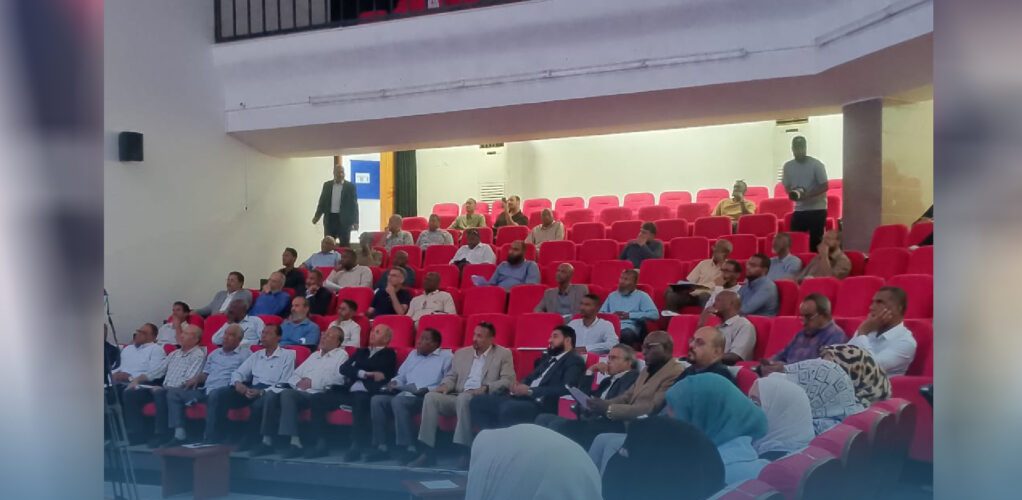Sebha – The scientific symposium titled “Findings and Trends in Cancer Research in Southern Libya,” under the slogan “Cancer Patients: From Pain to Hope,” concluded its activities, Wednesday, at Sebha University. The event was organized by the university’s Research and Scientific Consulting Center in collaboration with the Sebha Oncology Center.
The symposium’s participants recommended supporting studies that focus on the most prevalent types of cancer and enhancing the research environment by establishing specialized immunology laboratories and research centers for immunotherapy and anti-cancer vaccines, equipped with the latest devices, and providing qualified personnel and continuous training for researchers and doctors. They also called for the creation of a database and a national cancer registry to develop a comprehensive system for collecting and analyzing data related to incidence, mortality, and temporal and spatial trends, and to link environmental, nutritional, and genetic factors to evaluate the effectiveness of early detection and health awareness programs.
The participants stressed directing scientific research towards national priorities and supporting studies on the most common cancers or those with increasing rates, in addition to studying their associated biomarkers to develop early diagnostic tools and treatments. They also affirmed the importance of developing and localizing nanotherapy technologies and supporting research in the field of nanoparticles for their use in precise drug delivery, while establishing national policies to fund projects and ensure all patients have access to treatments according to international standards.
They recommended strengthening scientific cooperation between universities and research centers to unify efforts in analyzing cancer-related genes and to exchange data and expertise. They also called for launching sustainable research programs, including the establishment of sample banks and data registries to study the relationship between microbes and tumors in the region. They also urged for ongoing scientific collaboration between Sebha University and the Oncology Center to advance scientific research and enhance training and qualification programs.
Participants emphasized the importance of strengthening early detection and prevention programs, integrating regular screenings into public and private medical examination programs, and intensifying awareness campaigns while ensuring the confidentiality of medical information and improving the efficiency of preventive services. This is in addition to supporting the psychological and social well-being of cancer patients and their families by integrating psychological and social counseling services and training staff at oncology centers on effective support methods.
They also affirmed the role of women in spreading the culture of cancer prevention within the family and society and the necessity of organizing awareness workshops and seminars. They stressed the importance of strengthening infection control policies, rationalizing the use of medications in oncology centers, and adopting a unified protocol to ensure patient safety and the effectiveness of treatments. They also called for holding a specialized scientific conference to follow up on the latest research and medical developments in the field of oncology.
